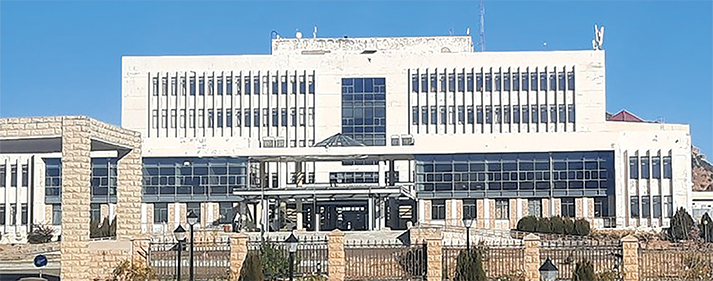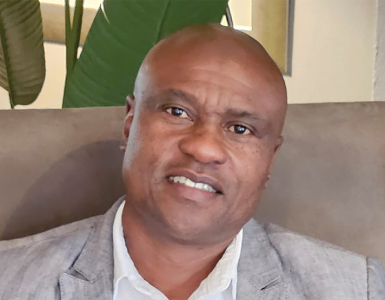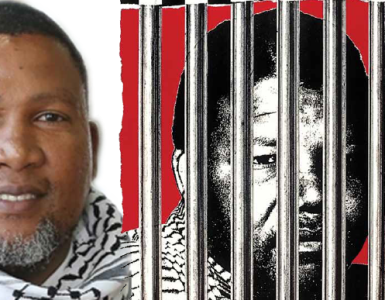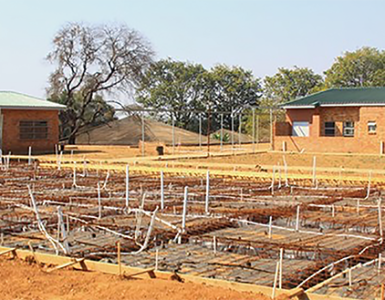VIOLATION: The kingdom’s cabinet ministers to engage with South African counterparts over the issue…
By Sechaba Mokhethi
The Migrant Workers Association of Lesotho has condemned the denial of healthcare services to Basotho migrants living in South Africa, saying it is a violation of their human rights and international law.
In a statement on Tuesday, the association’s executive director, Lerato Nkhetše, said the refusal to treat Basotho, especially in Gauteng, where migrants are reportedly blocked from accessing medical care at clinics and hospitals unless they produce South African IDs, is a violation of their right to health.
Speaking to GroundUp, Nkhetše said the association was compelled to speak out after receiving over 60 reports from members who were denied access to clinics and hospitals, mostly in Soweto.
“We receive alerts from our WhatsApp groups for different provinces, where members post about what’s happening in their areas. It became clear the issue was widespread and serious,” he said.
Nkhetše said women are the most affected, as they make up the majority of Basotho migrants in South Africa and are more likely to seek medical services and follow up on treatment.
“Denying healthcare to Basotho immigrants not only inflicts harm on individuals [and] undermines the core principles of human dignity and equality that are non-negotiable in any just society,” Nkhetše said.
He called on authorities in both Lesotho and South Africa to investigate the violations, hold those responsible accountable, and implement measures to ensure immediate and equitable access to healthcare for all Basotho living in South Africa.
While South African President Cyril Ramaphosa and several human rights organisations have condemned such xenophobic actions – often carried out by members of Operation Dudula – Nkhetše expressed disappointment with Lesotho’s own Parliament, particularly when a request for an urgent debate on the issue was rejected.
On Monday, Professor Nqosa Mahao, leader of the Basotho Action Party, made a special appeal to the Speaker of the National Assembly, Tlohang Sekhamane, for Parliament to discuss the situation. Sekhamane declined, arguing that allowing the request without evidence would “set a bad precedent”.
In response, Nkhetše said, “We wonder what evidence is needed when the situation is all over the media, with videos and reports of non-South Africans being expelled from clinics.”
He said the Lesotho government needs to act urgently, suggesting that Lesotho embassies and consulates in South Africa should be equipped with permanent clinics for Basotho.
“If riots like those led by Operation Dudula occur, at least our people would have a place to run to for healthcare. Even if the consulates are far, it’s still better than travelling all the way back to Lesotho,” he said.
Nkhetše warned that the current situation could seriously undermine Lesotho’s efforts to combat HIV and other public health crises. “In Lesotho, many clinics are reporting rising numbers of defaulters because patients collect medication in South Africa. If they are turned away there, they simply stop taking their medication,” he said.
Last week, while briefing the media on cabinet decisions, Minister of Communications Nthati Moorosi confirmed that the issue had reached the highest levels of government.
She stated that the cabinet had instructed the Minister of Foreign Affairs and the Minister of Home Affairs to initiate negotiations with their South African counterparts.
“We have seen videos of South Africans physically removing non-citizens from clinics and hospitals. It puts us as the Basotho nation in a very difficult position,” Moorosi said. She noted that South Africa had recently agreed to allow Basotho to stay in the country for up to 90 days.
Moorosi said, “Our plea is simple. If you give Basotho citizens permission to be in South Africa lawfully, then you must also allow them access to essential services like healthcare. Otherwise, what message are we sending?”
She called for an immediate end to discriminatory practices in South African health facilities. “Access to healthcare is a human right, wherever you are”. – GroundUp
MIRROR Briefs
5 HELD FOR SCHOOL PROPERTY THEFT
Five men have been arrested in connection with the theft of property from Hodisa Technical School in Bloemfontein, the South African Police Service (SAPS) in the Free State said.
The suspects, aged between 21 and 34, were found in possession of stolen air conditioners, copper pipes, a Bosch grinder and a Bosch drill.
“The arrest took place after police had received a tip-off about a group of males grinding stolen property at a house in the Rocklands area of Bloemfontein,” the SAPS said in a statement.
The arrests were made in a joint operation between Kagisanong police and the Bloemfontein Flying Squad.
Upon arrival, officers discovered the suspects actively grinding the air conditioners and cutting copper pipes, which were later identified as having been stolen from the school.
“The suspects broke into the school’s Technical Lab, making off with the items recovered by police,” the police said while also urging communities to work with law enforcement to prevent similar crimes.
Anyone with information regarding the case or the whereabouts of other suspects or stolen property is encouraged to contact Kagisanong Police Detective Sergeant Teboho Monnye on 082 465 5945. – SAnews
IDT BOSS IN HOT WATER
Public Works Minister Dean Macpherson has opened a criminal case at the Cape Town Police Station against suspended IDT CEO Tebogo Malaka and entity spokesperson Phasha Makgolane.
This comes after footage emerged showing both IDT execs allegedly trying to bribe investigative journalist Pieter-Louis Myburgh with R60 000 to suppress a corruption exposé.
Addressing the media outside the police station, Macpherson said about the footage : “It made me sick to my stomach and left me in disbelief.”
He emphasised his personal commitment to combating wrongdoing, saying he would “personally open cases against those accused of criminality because I must lead from the front”.
The charges include corruption, bribery, collusion and multiple breaches of fiduciary duties under the Public Finance Management Act. The minister described the actions of Malaka and Makgolane as “an assault on the institutional framework of government” and “an attack on not only the free press but on our democracy”.
He added that Makgolane, as the IDT spokesperson, had knowledge of the scheme but failed to disclose it, despite an obligation to do so.
The minister has formally requested that the case be transferred to the Hawks and treated with urgency. – Lehlohonolo Lehana
ENGINEER’S KILLERS GET LIFE
Four people have been sentenced to life imprisonment for the murder of engineer Oscar Hlatshwayo in a drive-by shooting in Ladysmith in 2019, the South African Police Service has confirmed..
The SAPS Political Killings Task Team secured the convictions in the Madadeni High Court.
At the time of his murder, Hlatshwayo was an Executive Director in the Engineering and Infrastructure Services Department of the Alfred Duma Local Municipality in KwaZulu-Natal.
The following were each sentenced to life imprisonment for their roles into the murder of the late engineer:
• Nomaswazi Shabalala who was a senior engineer at the Alfred Duma Local municipality was convicted fpr having ordered the hit.
• The second accused, Mondli Mabaso is a businessman linked to tenders at the municipality.
• The third convict, Mduduzi Njuza’s role was to coordinate and organise the firearms used in the commission of the crime and the fourth accused, Brown Ngcobo was the one who shot Hlatshwayo.
The National Commissioner of the SAPS, General Fannie Masemola, welcomed the life imprisonment sentence for each accused and said he hoped the convictions would provide the necessary closure to the family of the murdered civil engineer. – SAnews.
SA-USA FURTHER TALKS ON TARIFFS
President Cyril Ramaphosa and US President Donald Trump held a telephone call a day before United States 30% tariffs kicked in this week.
Trump signed an executive order on July 31, setting punitive import tariffs on a host of countries, including South Africa.
While it has been reported for months—at least since April 2025—that key export industries like the automotive sector and agriculture would be hit hard by the tariffs, the wider impact on local consumers has been less apparent.
“The two leaders undertook to continue with further engagements, recognising the various trade negotiations the U.S. is currently involved in,” Ramaphosa’s office said in a brief statement.
The US’s duties on South African goods going into the world’s biggest economy are the highest charged on exports from any sub-Saharan nation, and form part of a US shakeup of its relationship with trading partners. Meanwhile, Portfolio Committee on Trade, Industry and Competition expressed concerns about the impact of the tariffs, particularly on automotive, steel and agricultural products, as affected South African exports will become less competitive in the US.
The committee supports efforts to negotiate a deal with the US, including the enhancement of the Trade and Investment Framework Agreement, as a way to address bilateral trade and investment concerns. – Lehlohonolo Lehana





























